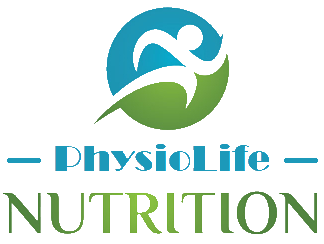Since Oprah did her Gluten-Free cleanse in 2008, there has been a lot of hype about this diet. A lot of people think that eating a gluten-free diet is a just a fad or a way to lose weight. While both of those are somewhat true, it is important to look at the facts to see what is really going on with gluten.

What is gluten?
Gluten is a protein that is found in the endosperm of wheat, barley, and rye. It is what gives bread its chewiness and texture and allows dough to be stretchy and elastic.
What is the difference between celiac, gluten intolerance and a gluten allergy?
Celiac is an auto-immune disease that affects your intestines. When someone with this disease consumes gluten, the body sees it as a pathogen. The lining of the small intestine then becomes inflamed to keep this pathogen from being absorbed, but in turn it stops absorbing other nutrients as well. This leads to irregular bowels, fatigue, rashes, headaches, and weight loss. This is commonly misdiagnosed as Irritable Bowel Syndrome (IBS). In order to remedy this, all one needs to do is eliminate gluten from the diet and over time, the inflammation will go down and nutrient absorption will return to normal.
Gluten intolerance is a much less severe form of celiac disease. Someone who is gluten intolerant can function almost just as anyone else, however they may have some bodily discomforts. This could include irregular bowels, headaches, stomach aches, or fatigue. This condition is commonly misdiagnosed as IBS as well. Eliminating gluten from the diet will eliminate these symptoms as inflammation decreases and nutrient absorption returns to normal.
A gluten allergy, or wheat allergy, is much like any other food allergy. This means that your body elicits an histamine immune response when you come in contact with it. This response varies based on the person and severity. It could mean hives, inflamed throat, sneezing, or any other common allergy side effect.
What are the benefits of eating gluten-free?
If you are one of the many people that has a gluten sensitivity of any kind, the benefits of eliminating that element of your diet is obvious. However, there are still benefits that can arise from eating a gluten-free diet if you do not have a sensitivity. A lot of times, a gluten-free diet means a diet lower in processed foods, simple carbohydrates, and grains. For most people, this equates to weight loss, which in itself contributes to a myriad of health benefits. In addition to this, there is some research out there that suggests that wheat may just not be as easy for our bodies to handle as was previously assumed. Humans were originally hunter gatherers. This means that they ate mainly meats and fruits and vegetables that they are foraging for. It is hypothesized that while our bodies may be able to handle eating small amounts of wheat here and there, we were not built to process the vast quantities of grains that humans are digesting these days. Given this information, I think anyone can benefit from eliminating gluten from their diet.
If I can’t eat wheat, what can I eat?
There is a long list of grains that are gluten free and can be consumed on a gluten free diet. These include:
- Buckwheat
- Rice
- Tef
- Quinoa
- Amaranth
- Oats (certified gluten-free)
- Corn
- Sorghum
- Millet
- Jacob’s Tears
Also, more and more products are appearing in grocery stores every day that are gluten-free. Many of these items can be found in the freezer section. These include breads, pizzas, cookies, waffles, pie crusts, doughnuts, scones, muffins, and so much more. You can also find quite a few cereals that are gluten-free and more pasta than you will know what to do with. It is important to note however, that these products are usually a little pricier than their gluten-filled originals. Yet, even everyday brands are coming out with gluten free alternatives to the favorites. Chex cereal now has gluten-free, and Bisquick has developed a gluten-free pancake mix that is quite good. (It is important to remember that although these products are gluten-free, they are not calorie free!)


If it is gluten-free, it will specifically say that it is. Wheat-free is not the same as gluten-free, so make sure that your product specifically states gluten-free. Certified gluten-free is even better.
Depending on how strict you want to be, there are other things that you will want to watch for as well. Be wary of salad bars, hot food bars, and ice cream bars, especially the items and serving utensils that are located around the gluten containing items, there tends to be a lot of cross contamination in these areas. Also, if you are a fan of French fries, you will want to make sure they aren’t battered and that they are either baked or friend in oil separated from the battered and breaded items. Also, many items like soups and meat products like sausages use wheat as a thickener and binder. Be sure to check ingredients labels and to ask your server about whether or not an item is gluten-free. Don’t forget that all fruits and vegetables are gluten-free and are not to be neglected in your diet!
